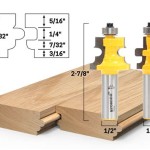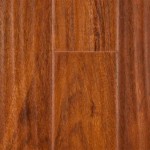Laying Down Vinyl Flooring On Concrete: Essential Aspects
Concrete's inherent properties, such as being flat and level, make it a great foundation for vinyl flooring. By following the proper procedures and meticulous attention to detail, you can create a beautiful and durable vinyl floor that will enhance the aesthetics and functionality of your space.
Surface Preparation: The Bedrock of a Flawless InstallationMeticulous surface preparation is paramount to ensure a flawless vinyl flooring installation. Begin by thoroughly cleaning the concrete surface to eliminate any dirt, dust, or debris that could impair adhesion. Subsequently, inspect the concrete for any imperfections such as cracks or uneven areas. If any are found, repair them using suitable patching or leveling compounds to create a smooth and even surface.
Moisture Control: Preventing Damage and Ensuring LongevityConcrete's porous nature can lead to moisture issues, which can be detrimental to vinyl flooring. Therefore, it's crucial to take proactive measures to prevent moisture-related problems. Utilize a moisture barrier to safeguard your vinyl flooring from moisture vapor transmission. This barrier acts as a protective layer, safeguarding the integrity and longevity of your flooring investment.
Acclimation: Allowing the Flooring to AdaptAllowing the vinyl flooring to acclimate to the installation environment is a vital step often overlooked. Exposing the flooring to the room's temperature and humidity conditions for a specified duration enables the material to stabilize and adjust. This crucial step minimizes the risk of buckling, gaps, or other issues that could arise from installing the flooring in an unsuitable state.
Installation Methods: Choosing the Right ApproachThere are two primary methods for installing vinyl flooring on concrete: glue-down and floating. Selecting the appropriate method depends on various factors, including the specific vinyl flooring type, traffic patterns, and personal preferences. Glue-down installation involves adhering the flooring directly to the concrete using an appropriate adhesive, resulting in a secure and durable bond. Floating installations, on the other hand, involve assembling the planks or tiles together using an interlocking system, creating a floor that "floats" over the concrete surface without the need for adhesives.
Finishing Touches: Enhancing Aesthetics and ProtectionOnce the vinyl flooring is installed, it's time to add the finishing touches that will enhance its aesthetics and provide protection. Install baseboards or moldings around the perimeter of the room to conceal the expansion gap and provide a polished look. Additionally, consider adding a protective coating, such as a polyurethane finish, to safeguard your vinyl flooring from scratches and wear, ensuring its pristine condition for years to come.
Conclusion: A Beautiful and Durable Flooring SolutionLaying vinyl flooring on concrete requires careful planning and execution, but the rewards are well worth the effort. By following the outlined essential aspects, you can achieve a beautiful, durable, and low-maintenance vinyl floor that will elevate the style and functionality of your space. Remember, meticulous preparation, moisture control, proper acclimation, and selecting the right installation method are key to a successful outcome.

How To Prepare A Concrete Floor For Vinyl Flooring Parrys

Easy Ways To Install Vinyl Plank Flooring On Concrete

Tips For Installing Vinyl Plank Over Concrete Floors Lemon Thistle

Easy Ways To Install Vinyl Plank Flooring On Concrete

Concrete Subfloor Preparation For The Vinyl Floor Installation How To Diy Mryoucandoityourself

Laying Vinyl Planks The Right Way Expert Guide By Fantastic Handyman

How To Install Vinyl Or Laminate Floors In A Basement Over Concrete Slab

How To Install Vinyl Plank Flooring On Concrete Base

Easy Ways To Install Vinyl Plank Flooring On Concrete

How To Install Vinyl Or Laminate Floors In A Basement Over Concrete Slab








